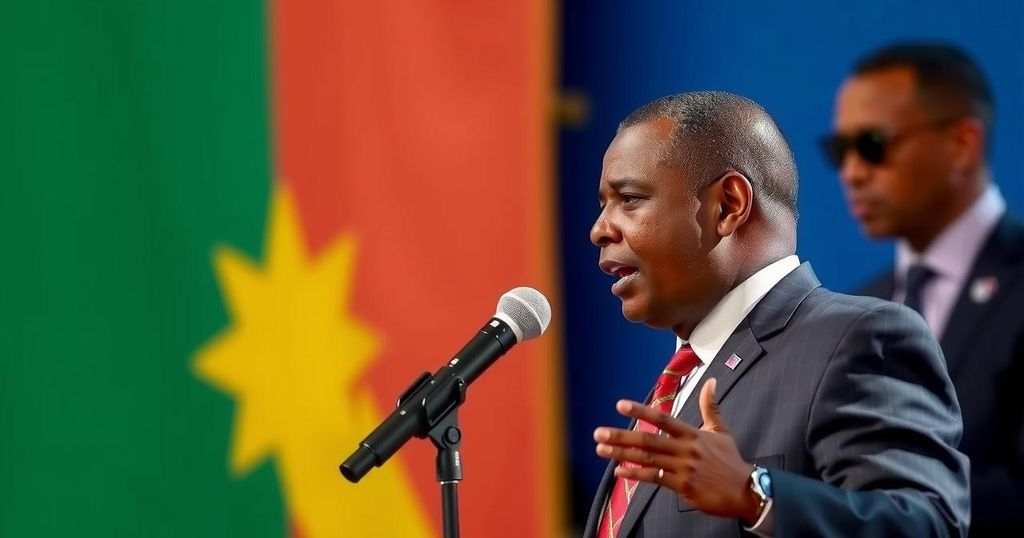Mozambique’s Ruling Party Secures Election Amid Violence and Fraud Allegations

Daniel Chapo of the ruling Frelimo party won the presidential election with 70.7% of the votes, while opposition candidate Venâncio Mondlane received 20.3%. The election was marred by the murders of opposition figures and allegations of fraud, including the registration of fake voters. Observers noted irregularities in the electoral process. Mondlane urged peaceful protests for change, raising concerns about the authorities’ responses to dissent.
The ruling party of Mozambique, Frelimo, has declared victory in the presidential election amidst serious allegations of electoral fraud and violence. Daniel Chapo, representing Frelimo, secured a significant majority, receiving 70.7% of the votes—well above the 50% threshold needed to prevent a runoff election. In stark contrast, Venâncio Mondlane, a prominent opposition candidate who resonated with the youth, garnered 20.3% of the votes. His campaign was tragically overshadowed by the murders of two opposition figures, Elvino Dias and Paulo Guambe, just days before the election, raising concerns about the integrity and safety of the electoral process. Civil organizations had previously criticized Frelimo for allegedly registering nearly 900,000 fictitious voters from an electorate of approximately 17 million. Moreover, both local and international observers reported unsettling practices during the election count, including ballot stuffing and unauthorized modifications of results. These actions have aggravated the distress surrounding Mozambique’s political climate, already weakened by a history of corruption and economic instability following a significant government scandal in 2016. Mondlane, appealing particularly to younger voters in a nation where the average age is below 18, called for peaceful demonstrations through social media, urging citizens to reclaim their power and push for vital changes in the country’s governance. Meanwhile, human rights advocates have expressed concern over the potential for government repression against protesters, emphasizing the need for protection of civil liberties during these turbulent times.
Mozambique has been ruled by Frelimo since its independence in 1975, and the party’s dominance has been characterized by allegations of corruption and human rights abuses. The recent elections, held on October 9, have highlighted these concerns, particularly following the discovery of hidden loans that severely impacted the nation’s economy, leading to a withdrawal of international financial support. The country struggles with poverty and governed by a youthful populace that is increasingly frustrated with the status quo. The assassination of opposition figures adds a layer of tension, suggesting a dangerous atmosphere surrounding political dissent. Calls for reforms and peaceful protests reflect a yearning for change among Mozambique’s young citizens, further complicating the already volatile political landscape.
The recent election in Mozambique has underscored the pervasive issues of corruption, violence, and lack of transparency in the political process. Frelimo’s substantial victory, despite serious allegations of electoral malpractices, reflects the challenges that opposition parties face in a tightly controlled political environment. The tragic killings of opposition members have amplified fears regarding civil safety and the integrity of democratic processes. As young voters rally for change, the future of Mozambique’s governance remains uncertain, with calls for peaceful protest highlighting the deep desire for a fair political landscape.
Original Source: www.theguardian.com







